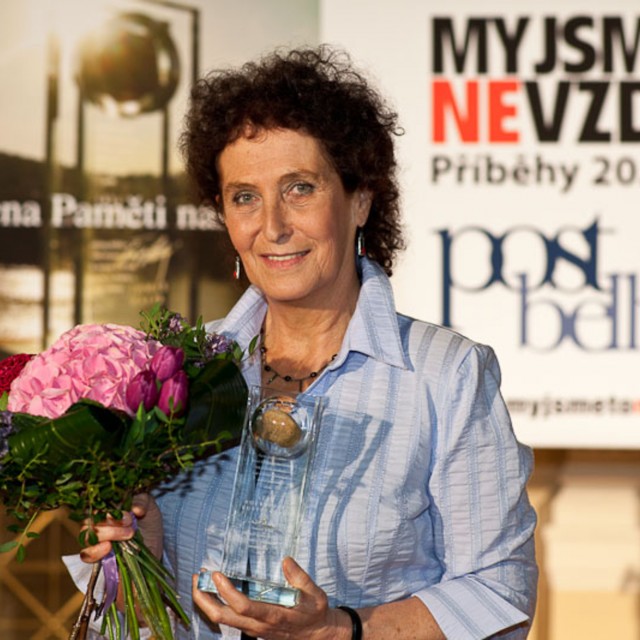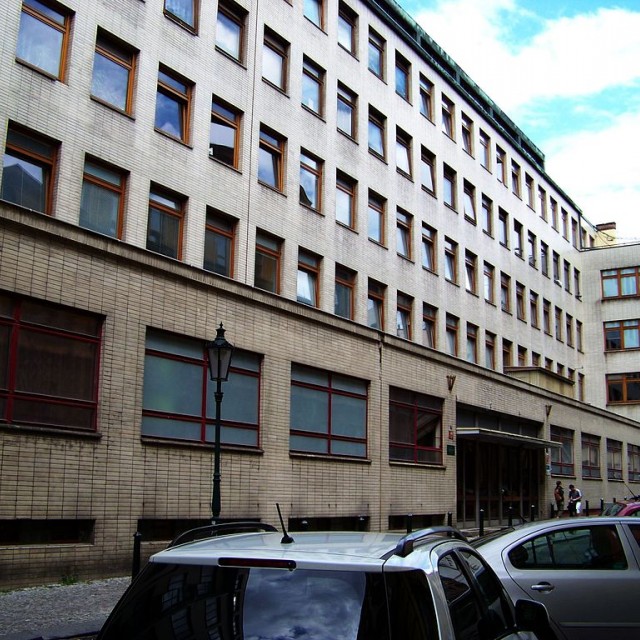I was ready for the first interrogation
The spouses Věra and Pavel Roubalovi were among the first signatories of the Charter 77. According to Věra Roubalová, they basically lived a happy family life until that moment. But this was soon to change after the imprisonment of their friend and former schoolmate Jiří Müller for distributing leaflets. It was him who introduced the spouses to the Charter and according to Věra Roubalová, they did not hesitate to sign it. It was an obvious thing for them to do: “The signing of the Charter was nothing special for us, it was a necessity, even though we knew that everyone signing it will be interrogated.” They did not have to wait too long for the invitation to the first interrogation: “The first to be interrogated was Paul but he only had one strategy – he never said anything. When I was to be interrogated for signing the Charter, I was ready. I was very nervous and thus I saw a couple of people and asked them how to behave. At the interrogation, I just told them that I had very bad experiences with the secret police. I told them that in the 1950s, the StB forced my father to tell lies after a long time in solitary confinement. Thus I didn’t trust them and I refused to talk to them. They tried it a few more times. There was always one bad guy and one good guy. The good guy tried to convince me by talking about my children: “We know you have children, even though they’re still young. But one day, you’ll want to see them going to school’. So they tried sort of the classical methods that they’d employ over and over again. But I was ready for it, I simply refused and that was it.”
Hodnocení
Abyste mohli hodnotit musíte se přihlásit!
Trasy
Příběh není součastí žádné trasy.
Komentáře

Věra Roubalová
Věra Roubalová-Kostlánová, née Lomská, was born in 1947 in Prague. Her father and mother both had Jewish roots (her father originated in a famous Jewish family from Prague, the Liebens), they survived the war together in England and both were convinced Communists. Her father worked as a regional secretary of the Communist Party in the city of Plzeň. In the period of 1950-1956, he was imprisoned and tried in a trumped-up judicial process with Marie Švermova and the regional secretaries. Věra spent a part of her childhood with her younger brother in an orphanage. In the 1960s, while studying at college, she began to associate herself with student activists, in particular with Jiří Müller. This was also where she met her first husband Pavel Roubal. They strongly opposed the Soviet invasion in 1968 and helped to prepare the student strike of the fall of 1968. They also helped in organizing the funeral of Jan Palach. In spite of having three sons, the Roubalovi spouses were among the first signatories of the Charter 77. In the summer of 1978, Pavel Roubal was sentenced to two months in prison for producing and publishing samizdat books. Later, he became a member of the Committee for the Protection of the Unjustly Persecuted (VONS). At some point, Věra and Pavel moved from Prague to Častrov in the Pelhřimov region. However, they continued to maintain contacts with the other dissidents and they were constantly being spied on by the police. They were also interrogated several times by the police. In October 1990, Pavel Roubal committed suicide, suffering from a mental illness. In January 1992, Věra Roubalová became the last of three spokespeople of the Charter 77. Since the 1990s, Věra Roubalová, later Kostlánová, has devoted herself to psychotherapy and to working with migrants. She has worked for 15 years as an advisor in a refugee shelter. She received the Memory of Nations award for 2010.










